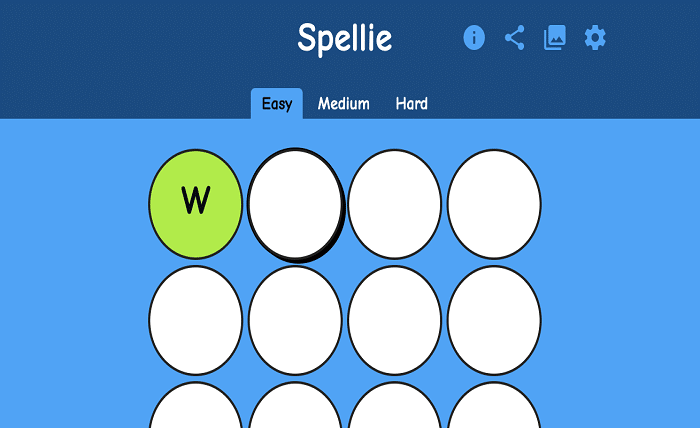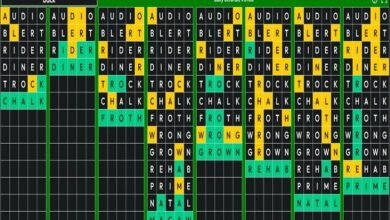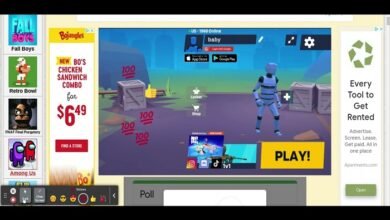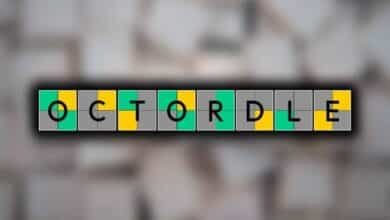
Introduction
In the digital age, where educational games are becoming increasingly popular, Kids Wordle stands out as a unique blend of fun and learning. Kids Wordle is a simplified version of the popular word game Wordle, designed specifically to cater to younger audiences. This game challenges children to guess a five-letter word within a set number of attempts, promoting language development and cognitive skills in a playful environment. This blog post will explore every aspect of Kids Wordle, from its gameplay and educational benefits to tips for parents and educators on how to make the most out of this engaging tool.
What is Kids Wordle?
Kids Wordle is an adaptation of the classic Wordle game, designed with children in mind. The game follows the same basic principles as the original Wordle, where players must guess a hidden five-letter word within six attempts. However, Kids Wordle incorporates child-friendly elements, such as simpler words, colorful graphics, and encouraging prompts, making it more accessible and enjoyable for younger players. The goal of Kids Wordle is not only to entertain but also to enhance children’s vocabulary, spelling, and critical thinking skills.
How to Play Kids Wordle
Playing Kids Wordle is straightforward, making it an ideal game for children of all ages. Each round begins with the player guessing a five-letter word. After each guess, the game provides feedback by highlighting the correct letters in green, the correct letters in the wrong positions in yellow, and incorrect letters in gray. The challenge is to use these clues to figure out the correct word within the allowed attempts. Kids Wordle is designed to be intuitive, ensuring that children can easily grasp the rules and enjoy the game without frustration.
Educational Benefits of Kids Wordle
Kids Wordle offers a plethora of educational benefits, making it more than just a game. Firstly, it helps in vocabulary building by introducing children to new words in a fun context. As they play, children are encouraged to think critically and strategically, improving their problem-solving abilities. Additionally, Kids Wordle enhances spelling skills as players learn to recognize patterns in words. The game also fosters patience and perseverance, as children must think carefully before making each guess. Overall, Kids Wordle is a powerful tool for cognitive development.
Kids Wordle as a Classroom Tool
Educators can leverage Kids Wordle as an effective classroom tool to supplement traditional learning methods. Incorporating Kids Wordle into language lessons can make vocabulary practice more engaging for students. Teachers can use the game to introduce new words, reinforce spelling lessons, and encourage group collaboration. Kids Wordle can also be used as a warm-up activity to stimulate students’ minds before diving into more challenging tasks. By integrating Kids Wordle into the curriculum, educators can create a dynamic and interactive learning environment.
Parental Involvement in Kids Wordle
Parents play a crucial role in enhancing their children’s learning experiences, and Kids Wordle provides an excellent opportunity for parental involvement. By playing Kids Wordle together, parents can support their children’s language development while spending quality time together. Parents can guide their children through the game, offering hints and encouragement when needed. Additionally, parents can use Kids Wordle as a conversation starter to discuss new words and their meanings. This interaction not only reinforces learning but also strengthens the parent-child bond.
Customizing Kids Wordle for Different Age Groups
One of the strengths of Kids Wordle is its adaptability to different age groups. For younger children, parents and educators can choose simpler word lists to match their vocabulary level. As children grow older and their language skills improve, the complexity of the word list can be increased to provide a greater challenge. Kids Wordle can also be tailored to focus on specific themes or subjects, such as animals, colors, or nature, making it a versatile educational tool that evolves with the child’s learning needs.
The Role of Technology in Kids Wordle
Kids Wordle exemplifies how technology can be harnessed to create engaging educational content. With the rise of digital learning tools, Kids Wordle offers a screen-time activity that is both fun and educational. The game is available on various platforms, including smartphones, tablets, and computers, making it easily accessible to children. The interactive nature of Kids Wordle keeps children engaged, while the instant feedback provided by the game enhances the learning experience. Technology has transformed traditional word games into dynamic tools for learning, and Kids Wordle is a perfect example of this innovation.
Kids Wordle and Social Interaction
While Kids Wordle can be played individually, it also encourages social interaction when played in groups. Children can play Kids Wordle with friends or family members, working together to solve the word puzzle. This collaborative aspect of Kids Wordle promotes teamwork and communication skills. In a classroom setting, Kids Wordle can be used as a group activity where students discuss possible word choices and share strategies. This social component adds an extra layer of enjoyment to the game, making it a shared experience that children look forward to.
Expanding Vocabulary with Kids Wordle
One of the primary benefits of Kids Wordle is its ability to expand a child’s vocabulary. Each game introduces new words, challenging children to think about word structures and meanings. As children encounter unfamiliar words, they are encouraged to ask questions and learn their definitions. Over time, this repeated exposure to new words enhances language skills and boosts confidence in using a broader vocabulary. Kids Wordle turns vocabulary building into an exciting game, making it a powerful tool for language development.
Developing Critical Thinking Skills with Kids Wordle
Kids Wordle is not just about guessing words; it’s about developing critical thinking skills. The game requires children to analyze the feedback from each guess and use logical reasoning to determine the correct word. This process of elimination and deduction sharpens their problem-solving abilities. Kids Wordle also encourages children to think ahead, considering various word possibilities and their potential outcomes. By engaging in this mental exercise, children develop the critical thinking skills necessary for academic success and everyday decision-making.
Incorporating Kids Wordle into Daily Learning Routines
Incorporating Kids Wordle into daily learning routines can have long-lasting educational benefits. Parents and educators can set aside a few minutes each day for children to play Kids Wordle, turning it into a fun and productive habit. This daily practice not only reinforces language skills but also keeps children mentally sharp. Kids Wordle can be used as a reward for completing homework or as a break between study sessions. By making Kids Wordle a regular part of the day, children can enjoy consistent learning while having fun.
Tips for Maximizing the Kids Wordle Experience
To get the most out of Kids Wordle, there are a few tips that parents and educators can follow. First, encourage children to take their time and think carefully before making each guess. This helps develop patience and strategic thinking. Second, use the game as an opportunity to introduce new words and discuss their meanings. Third, customize the word list to match the child’s age and skill level, gradually increasing the difficulty as they improve. Finally, make Kids Wordle a collaborative activity by playing together and discussing different strategies. These tips can enhance the learning experience and make Kids Wordle even more enjoyable.
Conclusion
Kids Wordle is more than just a game; it’s an educational tool that combines fun with learning. By challenging children to guess words, Kids Wordle helps improve vocabulary, spelling, and critical thinking skills. Whether used at home or in the classroom, Kids Wordle provides a dynamic and interactive way for children to engage with language. With its customizable features and adaptable difficulty levels, Kids Wordle can grow with children, making it a valuable resource for years to come. By incorporating Kids Wordle into daily routines, parents and educators can foster a love for learning while having fun.
FAQs
1. What age group is Kids Wordle suitable for?
Kids Wordle is designed for children of all ages. The game can be customized to match the vocabulary level of different age groups, making it accessible for younger children and challenging for older ones.
2. How can Kids Wordle help improve my child’s vocabulary?
Kids Wordle introduces children to new words in a fun and engaging context. As they play, children encounter and learn the meanings of unfamiliar words, expanding their vocabulary.
3. Can Kids Wordle be used as a classroom activity?
Yes, Kids Wordle is an excellent classroom tool. Teachers can use the game to reinforce vocabulary lessons, encourage group collaboration, and make language learning more interactive.
4. Is Kids Wordle available on different devices?
Kids Wordle is accessible on various platforms, including smartphones, tablets, and computers, making it easy for children to play the game on their preferred devices.
5. How can I make Kids Wordle more challenging for my child?
To increase the difficulty, you can customize the word list with more complex words and encourage your child to think critically about their guesses. As your child’s skills improve, gradually increase the complexity of the words used in the game.





